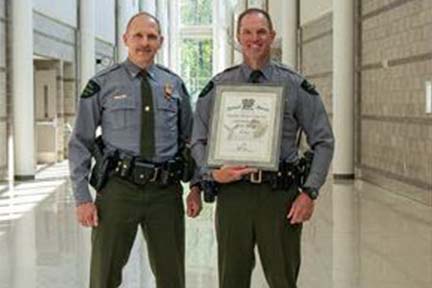
Exceptionally high interest in proposed Medicaid cuts
Press Release FOR IMMEDIATE RELEASE: May 12, 2025 CONTACT: Lynn Sutfin, 517-241-2112, SutfinL1@ Exceptionally high interest in how proposed Medicaid cuts LANSING, Mich. – Two virtual Medicaid funding briefings offered to statewide community partners last week by the Michigan Department of Health and Human Services (MDHHS) were maxed out, when more than 5,000 people registered for the events. MDHHS provided the briefings to ensure everyone has a chance to learn more about how proposed federal Medicaid cuts could result in a loss of health care coverage for hundreds of thousands of Michiganders, reduce access to providers for all residents, increase financial burdens on hospitals and small businesses, and significantly strain the state’s budget. Due to the high demand, MDHHS has posted a recording of the briefing online as well as additional supporting materials. “We know Michigan families, business owners and health care providers are very concerned about how these proposed federal cuts will affect our state and want to make sure everyone gets a chance to hear this information,” said MDHHS Director Elizabeth Hertel. “These cuts will impact health care services for all Michigan families – whether they have Medicaid or commercial insurance – and small town and rural communities are likely to be disproportionally affected through the loss of hospitals and providers. Studies show a lack of access to health care can lead to higher mortality rates, worse health outcomes, increased health disparities and strain the state’s emergency care system.” A Congressional plan to cut $880 billion from Medicaid so they can deliver a $4 trillion tax cut has been announced. If passed, this would be the largest cut to Medicaid in its 60-year history. Nationwide, millions would lose access to health care and the cost of health care will go up for every single American. Earlier this week, MDHHS published a report the department compiled in response to Executive Directive 2025-3 from Gov. Gretchen Whitmer, which directed MDHHS to identify the potential impact proposed cuts to Medicaid would have on Michiganders’ health. Medicaid serves a central role in Michigan’s health care system, providing comprehensive coverage to more than 2.6 million Michigan residents through over 200,000 Medicaid-enrolled providers. Jointly funded by the state and federal government, Michigan’s Fiscal Year 2025 Medicaid budget is approximately $27.8 billion. A majority of this funding – around 70%, or $19 billion – comes from the federal government. Medicaid is also one of the most cost-efficient forms of coverage, ensuring those with the greatest need have access to vital services, particularly in underserved communities and rural areas. It has lower total and per capita costs than all other major health programs, including Medicare and private health insurance. |






 Michigan Department of Natural Resources Conservation Officer Justin Ulberg has been named the 2024 Shikar Safari Michigan Wildlife Officer of the Year.
Michigan Department of Natural Resources Conservation Officer Justin Ulberg has been named the 2024 Shikar Safari Michigan Wildlife Officer of the Year.




 Late spring and early summer are times when turtles are moving en masse across the landscape. The females are actively looking for nesting sites, and males also just kind of wander this time of year, moving between the lakes, ponds and streams they call home.
Late spring and early summer are times when turtles are moving en masse across the landscape. The females are actively looking for nesting sites, and males also just kind of wander this time of year, moving between the lakes, ponds and streams they call home.
 As a result, the conservation of these animals really hinges on the protection and survival of the adults, who have already survived the gauntlet of predator threats as juveniles themselves.
As a result, the conservation of these animals really hinges on the protection and survival of the adults, who have already survived the gauntlet of predator threats as juveniles themselves.
 Michigan’s native turtle species are:
Michigan’s native turtle species are:
 The public can help by taking the following small steps:
The public can help by taking the following small steps:
 There’s not much the DNR, the Michigan Department of Transportation, county road commissions or other agencies and groups can do to keep these slow-moving animals from wandering onto roadways, but as professional natural resource managers, we can do our best to share their story and highlight this annual threat to turtle populations.
There’s not much the DNR, the Michigan Department of Transportation, county road commissions or other agencies and groups can do to keep these slow-moving animals from wandering onto roadways, but as professional natural resource managers, we can do our best to share their story and highlight this annual threat to turtle populations.